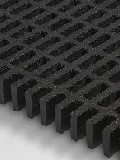loading...
- No. 9, Xingyuan South Street, Dongwaihuan Road, Zaoqiang County, Hengshui, Hebei, China
- admin@zjcomposites.com
- +86 15097380338
- Welcome to visit our website!
Fiberglass Reinforced Plastic Water Storage Solutions for Modern Applications
The Benefits and Applications of FRP Water Tanks
Fiberglass Reinforced Plastic (FRP) has emerged as a popular material for water tanks, replacing traditional materials like concrete and steel. FRP water tanks are increasingly favored across various industries due to their exceptional durability, corrosion resistance, and lightweight nature. This article delves into the advantages and applications of FRP water tanks, highlighting their significance in modern water storage solutions.
What is FRP?
FRP, or Fiberglass Reinforced Plastic, is a composite material made from a polymer matrix reinforced with fiberglass. This combination results in a material that is not only lightweight but also possesses remarkable strength and resilience. The construction of FRP involves weaving glass fibers into a resin, creating a highly durable and water-resistant product. As a result, FRP water tanks are ideal for storing potable water, wastewater, and even industrial fluids.
Advantages of FRP Water Tanks
1. Corrosion Resistance One of the most significant advantages of FRP water tanks is their resistance to corrosion. Unlike metal tanks that can rust or corrode when exposed to water and other chemicals, FRP tanks do not react adversely to most environments. This makes them ideal for storing a variety of liquids without the fear of contamination or structural degradation.
2. Lightweight and Easy to Install FRP tanks are significantly lighter than their concrete or steel counterparts. This weight advantage not only simplifies transport but also reduces the need for extensive structural support during installation. As a result, FRP tanks can be installed in a variety of locations, including rooftops or areas with limited foundation support.
3. Durability and Longevity FRP water tanks are designed to withstand harsh environmental conditions, including extreme temperatures and UV radiation. Their durability ensures a long service life, often exceeding that of traditional tanks. Additionally, FRP does not require frequent maintenance or inspection, which can save time and resources in the long run.
4. Customizability FRP water tanks can be manufactured in a variety of shapes, sizes, and configurations. This versatility allows for tailor-made solutions to meet specific storage requirements, whether for residential, agricultural, or industrial applications. The ability to customize also means that FRP tanks can fit seamlessly into existing infrastructure.
frp water tank

5. Environmental Benefits Given the growing emphasis on sustainability, FRP water tanks are a responsible choice. They are manufactured using materials that can be recycled, and their long lifespan reduces the need for frequent replacements, minimizing waste. Furthermore, the energy-intensive processes associated with other materials are lessened when using FRP.
Applications of FRP Water Tanks
FRP water tanks have a wide range of applications across different sectors
- Residential Use Homeowners often rely on FRP tanks for rainwater harvesting, storage of potable water, or irrigation. Their lightweight nature allows for easy installation on rooftops or in yards.
- Industrial and Commercial Use Many industries, such as food processing, pharmaceuticals, and chemical manufacturing, utilize FRP tanks for storing various liquids. The tanks provide a safe and secure environment for sensitive materials that require a controlled atmosphere.
- Municipal Water Systems Municipalities choose FRP tanks for their water storage solutions due to their durability and low maintenance requirements. These tanks can be used in both above-ground and underground applications, effectively supplying clean water to communities.
- Agriculture FRP tanks serve as effective storage solutions for agricultural practices, from irrigation systems to livestock watering needs. Their resistance to corrosion ensures that the stored water remains uncontaminated and safe for agricultural use.
In conclusion, FRP water tanks represent a modern solution to the age-old problem of water storage. With their myriad advantages, including corrosion resistance, customization, and environmental sustainability, they are revolutionizing water management in various sectors. As industries continue to seek innovative and efficient storage solutions, the role of FRP water tanks is bound to grow, ultimately contributing to improved water safety and availability around the globe.
-
The Rise of FRP Profiles: Strong, Lightweight, and Built to LastNewsJul.14,2025
-
SMC Panel Tanks: A Modern Water Storage Solution for All EnvironmentsNewsJul.14,2025
-
GRP Grating: A Modern Solution for Safe and Durable Access SystemsNewsJul.14,2025
-
Galvanized Steel Water Tanks: Durable, Reliable, and Ready for UseNewsJul.14,2025
-
FRP Mini Mesh Grating: The Safer, Smarter Flooring SolutionNewsJul.14,2025
-
Exploring FRP Vessels: Durable Solutions for Modern Fluid HandlingNewsJul.14,2025
-
GRP Structures: The Future of Lightweight, High-Performance EngineeringNewsJun.20,2025
